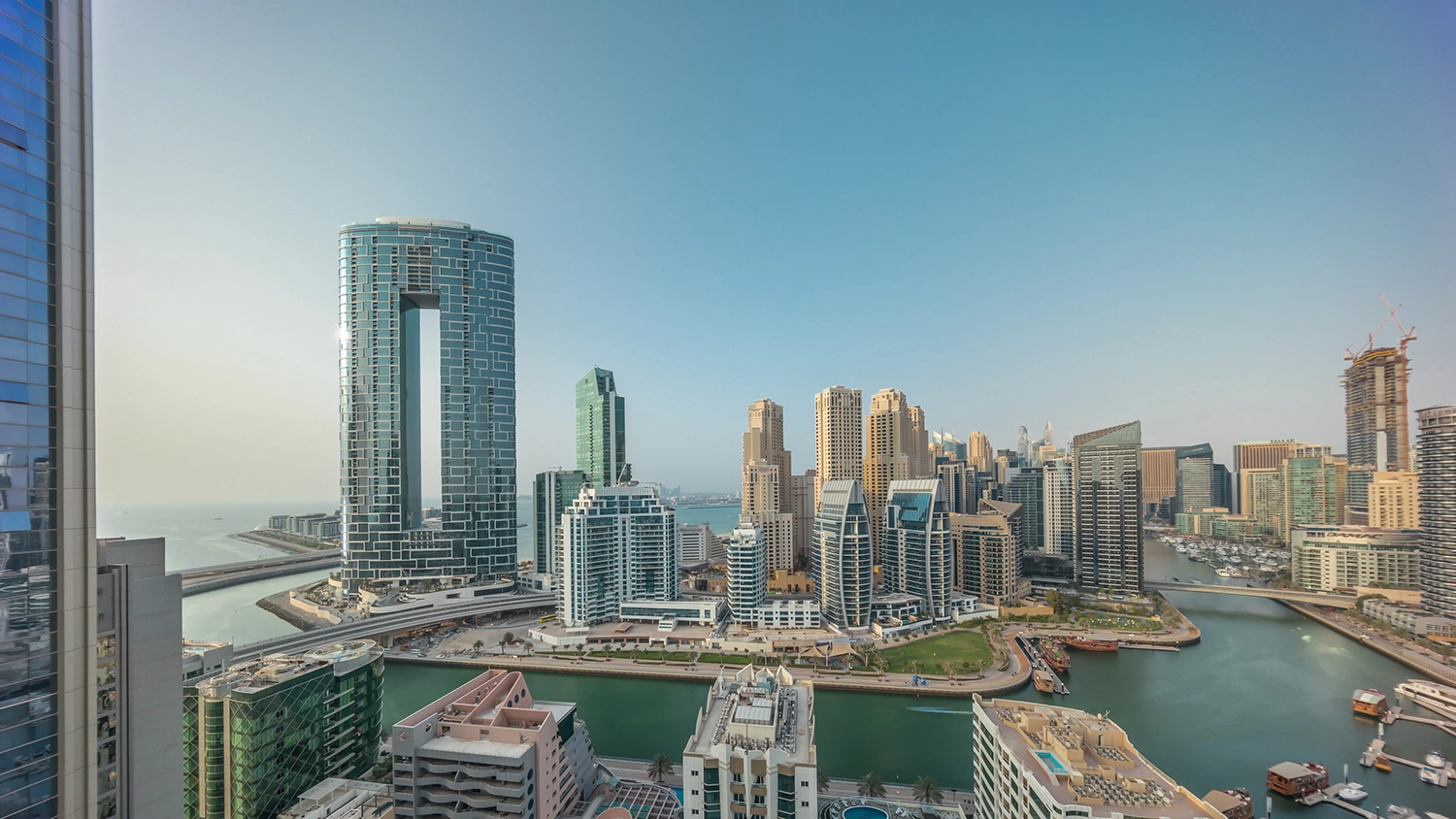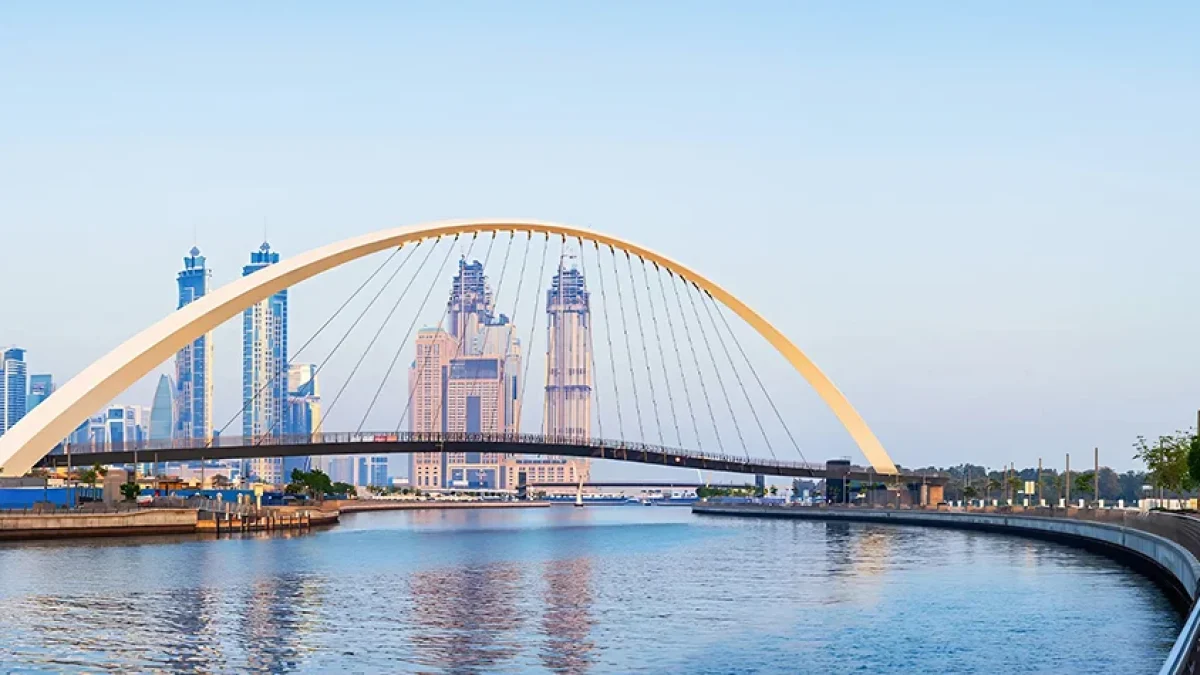Now Reading: Dubai Real Estate: 7 Ways Corporate Tax Will Impact Multi-Home Investors in 2025
-
01
Dubai Real Estate: 7 Ways Corporate Tax Will Impact Multi-Home Investors in 2025
Dubai Real Estate: 7 Ways Corporate Tax Will Impact Multi-Home Investors in 2025

Table of Contents
Dubai’s real estate market, valued at AED 761B in 2024 with 226,000 transactions (36% year-on-year growth), is a prime destination for multi-home investors, driven by high rental yields (6–11%), 100% foreign ownership in freehold zones, and 8–12% appreciation by 2028.
The UAE’s 9% corporate tax, effective June 2023 on profits above AED 375K, alongside regulations like the Domestic Minimum Top-up Tax (DMTT) and tightened AML rules, impacts investors holding multiple properties (AED 682K–3.5M) through corporate entities in areas like Downtown Dubai, Dubai Marina, and Jumeirah Village Circle (JVC).
With AED 260B in H1 2025 sales and 95% absorption, seven corporate tax implications—corporate tax applicability, free zone exemptions, DMTT for MNEs, expense deductibility, VAT compliance, AML compliance costs, and transfer fee structuring shape strategies for multi-home investors.
Despite a 10–15% correction risk in H2 2025 due to 182,000 new units, infrastructure like Dubai 2040 Urban Master Plan and tourism (18.7M visitors in 2024) sustain demand. This guide details each implication, eligibility, and impact on multi-home investors, backed by 2024–2025 data.
1. Corporate Tax Applicability on Property Income
- Details: The 9% corporate tax applies to entities (e.g., LLCs, SPVs) with taxable profits above AED 375K from real estate activities like leasing or selling multiple properties. Individual investors are exempt from personal income tax, making personal ownership tax-free for rentals (e.g., AED 80K–250K/year in Dubai Marina) and sales.
- Eligibility: Applies to corporate entities registered in Dubai’s mainland or non-qualifying free zones. Taxable income includes rental profits and capital gains from properties held as business assets (e.g., JVC apartments, AED 682K–1.15M). Requires FTA registration and filing by September 30, 2025, for 2024 fiscal years.
- Impact on Multi-Home Investors: Reduces net ROI by 9% for corporate-held portfolios (e.g., AED 18K tax on AED 200K profit from five JVC apartments). In 2024, 15% of Dubai’s multi-home investors used corporate structures, facing AED 50K–100K in taxes. Encourages holding properties as individuals to avoid tax, boosting demand for personal ownership in Business Bay (6–8% ROI).
2. Free Zone Corporate Tax Exemptions
- Details: Qualifying Free Zone Persons (QFZPs) in free zones like Dubai International Financial Centre (DIFC) or Jebel Ali Free Zone (JAFZA) enjoy a 0% corporate tax rate on real estate income, including leasing and sales of multiple properties (e.g., Business Bay offices, AED 1.3M–3.5M).
- Eligibility: Entities must register with DIFC or JAFZA, conduct qualifying activities (e.g., property management), maintain economic substance (e.g., local staffing, assets), and avoid mainland transactions unless strategic. Requires FTA compliance and audited financials.
- Impact on Multi-Home Investors: Saves 9% tax on profits (e.g., AED 90K on AED 1M profit from 10 apartments), enhancing ROI. In 2024, 10% of commercial transactions in DIFC leveraged this benefit, driving 88% foreign investment growth. Encourages multi-home investors to structure portfolios through free zones, increasing demand for properties near DIFC (8–10% ROI).
3. Domestic Minimum Top-up Tax (DMTT) for MNEs
- Details: Effective January 1, 2025, under Cabinet Decision No. 142 of 2024, MNEs with global revenues exceeding €750M (AED 3B) in two of the last four years face a 15% DMTT on UAE profits, including real estate income, to align with OECD/G20 Pillar Two. QFZPs in DIFC remain exempt if compliant.
- Eligibility: Applies to MNEs managing multi-home portfolios across Dubai and other emirates (e.g., Emaar’s properties in Downtown Dubai, AED 1.3M–3.5M). Requires FTA registration, audited financials, and filing by September 30, 2025. SMEs and individual investors are exempt.
- Impact on Multi-Home Investors: Increases tax burden by 6% over standard 9% corporate tax (e.g., AED 150K on AED 1M profit), reducing ROI for large corporate investors. In Q1 2025, 8% of Dubai’s high-value transactions involved MNEs, shifting focus to DIFC-based QFZPs. Encourages smaller investors to hold properties personally, boosting sales in JVC (9–11% ROI).
4. Expense Deductibility for Taxable Entities
- Details: Corporate entities can deduct allowable expenses (e.g., maintenance, marketing, financing costs) from taxable real estate income, reducing the 9% corporate tax liability. Applies to multi-home portfolios generating rental income or sales profits (e.g., Dubai Hills Estate villas, AED 2M–3.5M).
- Eligibility: Available to mainland or non-QFZP entities registered with FTA. Expenses must be business-related, documented, and compliant with FTA guidelines. Records must be kept for seven years.
- Impact on Multi-Home Investors: Lowers taxable income by 20–30% (e.g., AED 50K–100K deductions on a 10-property portfolio), saving AED 4.5K–9K in taxes. In 2024, 12% of corporate investors in Dubai utilized deductions, enhancing ROI in Business Bay (6–8%). Encourages detailed expense tracking, benefiting mid-sized investors with diversified portfolios.
5. VAT Compliance for Multi-Home Portfolios
- Details: Residential property sales and leases are VAT-exempt, but commercial properties (e.g., Business Bay offices, AED 1.3M–3.5M) incur 5% VAT unless zero-rated in DIFC. New residential builds face a one-time 5% VAT, recoverable if leased. Virtual asset transactions (e.g., crypto payments) require VAT compliance via licensed VASPs under 2024 AML regulations.
- Eligibility: Applies to corporate investors with mixed portfolios (residential and commercial). VAT recovery requires FTA registration and leasing documentation. Non-compliance risks penalties (AED 10K–50K).
- Impact on Multi-Home Investors: Saves 5% on residential transactions (e.g., AED 50K on a AED 1M JVC apartment), but commercial VAT adds AED 65K–175K per property. In 2024, 70% of Dubai’s residential sales were VAT-exempt, driving demand for JVC apartments. Encourages residential-heavy portfolios to maximize tax savings, with 10% of investors using crypto facing VASP compliance costs (AED 5K–10K).
6. AML Compliance Costs
- Details: UAE Central Bank AML & CFT Regulations 2024, effective January 2025, mandate stricter KYC and due diligence for multi-home transactions, especially cash or cryptocurrency deals. Applies to corporate investors managing portfolios across freehold zones like Dubai Marina and Palm Jumeirah.
- Eligibility: Applies to all corporate investors. Requires DLD/FTA compliance, bank statements, and proof of funds. Non-compliance risks fines (AED 50K–1M). Costs include KYC verification (AED 2K–5K per transaction).
- Impact on Multi-Home Investors: Increases transaction costs by AED 20K–50K for a 10-property portfolio, reducing net ROI by 0.5–1%. In 2024, 20% of Dubai’s cash-based sales (AED 28B in Q3) faced AML scrutiny, delaying deals by 1–2 weeks. Encourages digital transactions, boosting sales in tech-forward areas like Downtown Dubai (6–8% ROI).
7. Transfer Fee Structuring
- Details: Dubai charges a 4% transfer fee on property sales (split equally between buyer and seller), with 50% discounts (2% total) at expos like Dubai Property Festival 2025 or for first-time buyers under AED 1M (e.g., JVC apartments, AED 682K–800K). Corporate investors can structure transfers to minimize fees via entity restructuring exemptions (e.g., transferring properties to wholly owned entities).
- Eligibility: Available to all investors in freehold zones. Discounts require DLD verification or expo registration. Entity restructuring exemptions need proof of 100% ownership and RAK REA approval. Additional fees include agent commissions (2–5%) and registration (up to AED 5K).
- Impact on Multi-Home Investors: Saves AED 10K–40K per transaction (e.g., AED 20K on a AED 1M apartment), improving ROI. In 2024, 25% of transactions used expo discounts, driving 55% growth in new investors. Entity restructuring saved 5% of corporate investors AED 50K–100K annually, boosting demand in affordable areas like DIP (9–11% ROI).
Market Trends and Outlook for 2025
- Yields and Appreciation: Freehold zones offer 6–11% ROI (apartments 8–11%, villas 6–8%) and 8–12% appreciation by 2028, driven by AED 260B in H1 2025 sales and 18% rental growth (short-term rentals at 75% occupancy). JVC leads with 9–11% yields, Downtown Dubai with 6–8%.
- Tax Efficiency: Zero personal income tax, capital gains tax, and inheritance tax benefit individual investors. Corporate tax (9%) and DMTT (15%) reduce ROI for corporate portfolios, mitigated by free zone exemptions and expense deductions.
- Infrastructure Impact: Dubai 2040 Urban Master Plan and Etihad Rail (Q4 2025) boost connectivity (Dubai–Abu Dhabi in 57 minutes), increasing values by 10–15%. Tourism (18.7M visitors in 2024) drives demand for short-term rentals in Dubai Marina.
- Investor Drivers: Affordability (median AED 1.3M), 100% foreign ownership, and Golden Visas (AED 2M+) fuel 70% of demand. Off-plan sales (70.5% in April 2025) dominate, with 110,000 new investors in 2024, 20% holding multiple properties.
- Risks: Oversupply (182,000 units by 2026) and compliance costs (AML, DMTT) pose a 10–15% correction risk in H2 2025. Mitigated by 95% absorption, DLD oversight, and escrow accounts. AML scrutiny delays cash-based deals.
- Regulatory Framework: DLD ensures transparency with 2–4% transfer fees (discounts applied). Freehold zones allow inheritance rights. Escrow laws protect off-plan investments (e.g., Azizi Venice, handover Q4 2026). Blockchain-based tokenization streamlines multi-home transactions.
Investment Strategy
- Diversification: Invest in JVC (apartments AED 682K–1.15M) for high yields, Dubai Marina (villas AED 2M–3.5M) for luxury rentals, and Business Bay (offices AED 1.3M–3.5M) for commercial returns. REITs in DIFC offer passive 5–7% yields.
- Entry Points: Off-plan apartments (e.g., Azizi Venice, AED 1.15M) provide 10–15% gains by 2026–2027. Ready villas (e.g., Dubai Hills Estate, AED 2M–3.5M) suit immediate income (AED 80K–250K/year).
- Tax Optimization: Hold properties as individuals to avoid 9% corporate tax and DMTT. Use DIFC or JAFZA for commercial portfolios to leverage 0% tax. Maximize expense deductions and expo discounts. Consult advisors like HLB HAMT for FTA compliance.
- Process: Verify tax exemptions via DLD or free zone authorities. Pay 2–4% transfer fees and secure NOC. Use DLD-registered agents and platforms like dubizzle or Bayut. Required documents: passport copy, proof of funds, no UAE visa needed. Documents must be translated into Arabic and legalized.
Conclusion
In 2025, Dubai’s multi-home investors navigate seven corporate tax implications: 9% tax applicability, free zone exemptions, DMTT for MNEs, expense deductibility, VAT compliance, AML costs, and transfer fee structuring. These impact ROI for properties (AED 682K–3.5M) in freehold zones like JVC, Dubai Marina, and Business Bay, offering 6–11% yields and 8–12% appreciation by 2028.
Backed by AED 761B in 2024 transactions, infrastructure like Dubai 2040, and tourism (18.7M visitors), Dubai remains a top market. Despite a 10–15% correction risk, 95% absorption and DLD oversight ensure stability. Explore opportunities via dubizzle, Bayut, or developers like Emaar to optimize tax-efficient returns. Dubai
read more: Ras Al Khaimah Real Estate: 6 Key Tax Rules Near Free Zones Explained in 2025






















